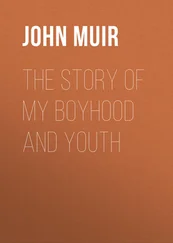Kathe Koja - Mirror of My Youth
Здесь есть возможность читать онлайн «Kathe Koja - Mirror of My Youth» весь текст электронной книги совершенно бесплатно (целиком полную версию без сокращений). В некоторых случаях можно слушать аудио, скачать через торрент в формате fb2 и присутствует краткое содержание. Жанр: short_story, на английском языке. Описание произведения, (предисловие) а так же отзывы посетителей доступны на портале библиотеки ЛибКат.
- Название:Mirror of My Youth
- Автор:
- Жанр:
- Год:неизвестен
- ISBN:нет данных
- Рейтинг книги:5 / 5. Голосов: 1
-
Избранное:Добавить в избранное
- Отзывы:
-
Ваша оценка:
- 100
- 1
- 2
- 3
- 4
- 5
Mirror of My Youth: краткое содержание, описание и аннотация
Предлагаем к чтению аннотацию, описание, краткое содержание или предисловие (зависит от того, что написал сам автор книги «Mirror of My Youth»). Если вы не нашли необходимую информацию о книге — напишите в комментариях, мы постараемся отыскать её.
Mirror of My Youth — читать онлайн бесплатно полную книгу (весь текст) целиком
Ниже представлен текст книги, разбитый по страницам. Система сохранения места последней прочитанной страницы, позволяет с удобством читать онлайн бесплатно книгу «Mirror of My Youth», без необходимости каждый раз заново искать на чём Вы остановились. Поставьте закладку, и сможете в любой момент перейти на страницу, на которой закончили чтение.
Интервал:
Закладка:
It was Raymond’s name on the progress reports, Raymond’s preferences in the client file; he was even listed on the donor sheet, and when she protested this last obliterating irony he had obliterated her further: “Well, let’s be realists, Rachel, who is all this for? You or me? You won’t even be here.”
“Thank God,” she had said, already sorry, sorry unto death, but there was now no chance of erasing the fruit of this creation, this costly exclusive child of her flesh. Of course Raymond had long ago refused her the chance for children, but then again this would be no child: this was the second coming of Rachel, his wife improved. The flesh-toy, Rachel called her, called it, unwilling to admit to personhood this monstrous insult, all the more monstrous for her own complicity in its conception.
The progress reports continued. The flesh-toy prospered, the years went on, and her disease, like a river, ran through it all; sometimes she thought she was dying, and in the fading instant wondered with pale regret what it would have been like, to see this woman, this cloned pet of hers.
And now, of course, she knew.
Carlene drank tomato juice. Carlene wore wool. Carlene did crossword puzzles, slightly crooked teeth unconsciously exposed as she frowned over a word like lepidopterist or pantophobia. Rachel watched her like an anthropologist, thinking, I do none of these things, I never did. And yet Carlene liked loud bass-heavy music, and cut apples in slices, never the wedges that Raymond preferred: “They taste better this way,” she said firmly, and reluctant, Rachel thought Yes. They do.
She was repellent to Rachel, yet irresistible, as consuming as an itch the time spent observing, seeing spread before her the sweet table of her own youth, lived anew each day in the person of a stranger. As Carlene fetched and carried for Raymond, admired his gardens, studied his art, did all the things she had been created to do, Rachel sat wrapped in the pocket of her pain, and watched.
See the flesh-toy reenact the same old ballet, the same old pavane of his ego and her cheery prostration, his heavy-handed lessons and her student’s gravity, his reversionist cant and her wide-eyed worship — it was far worse than Rachel had imagined, far uglier than she could have guessed in the days when she nursed her indignity like a shameful pleasure. But I thought I would be dead, she argued with herself. I thought I wouldn’t have to see. Does that make it better? with cold self-disdain, and the eyes that watched Carlene grew dry with a feeling she had not bargained for, that she had imagined in this time of deathbound selfishness beyond her.
She tried to turn away, tried to tell herself it was none of her business, Raymond had certainly made that clear. His toy, his money. His sin. Not mine, but: Raymond’s hand on Carlene’s shoulder, not possessive but devouring, who better than Rachel to know at last what a simple eating machine he was, she who had been his feast for so long. She wanted to go to Carlene and say, Get out of here. Run for your life. But she had read the contract, so many times it was memorized. There was simply no option for Carlene.
Carlene stayed out of her way those first few months, always genuinely pleasant when they met, in the hall, in the kitchen, but also seeming to engineer those meetings deliberately, to keep them brief and few. Carlene had had her own treatment, there at the clinic, her own lessons to learn. Only Raymond had had no treatment. Only Raymond was allowed that largesse.
But finally Rachel tired of it, finally cornered Carlene in the bathroom of all places, stopped her as she left: one hand on the doorjamb, the other cool and useless at her side. The pain was a brisk thing today; it made her blunt.
“I want to talk to you.”
“All right.” No smile but no discomfort either, leading the way into the morning room: had I, Rachel thought, been so commanding, so very young? And the answer was no, of course, this was less her than that first aimless swirl of cells; the physical duplication was flawless, but the mind behind was Carlene’s own.
Now the time to talk, and the words embarrassed her with their inherent idiocy, How does it feel? What do you think about it? Carlene, that grave pucker she recalled from mirrors, that frown that meant I’m listening. “Carlene.” Rachel’s voice kept even. “What does this mean to you?”
“What?”
Rachel shook her head, impatient, waved a finger back and forth. “This, all of this.”
And with her own impatience, “That’s like asking a baby what it thinks of sex. It got me here, didn’t it?”
Rachel laughed, surprised, and Carlene smiled. “I read the contract,” she said. “I have a place to stay. Nobody said I had to like anything.” Rising up, all in black today with Rachel’s own brilliance in that color, and without thinking Rachel put one hand on Carlene’s arm, remembering the stretch and easy pull of muscles all unconscious of a time when such motion would be less memory than joke, and said, “Has Raymond tried to sleep with you yet?”
“Yet,” Carlene said, and snickered. And gone.
Yes. Well. What had she expected? — as the morning room turned cold, as the sun turned away — it was the virtual owning of a human being, Carlene’s brick-wall acceptance notwithstanding, worse than slavery even if she smiled, even if inside she screamed with laughter every time Ray’s prick saluted. You bought her, too, her mind reminded, cold calendar. Not your money, but worse. Your blood. Your pity. For Ray.
“Shit,” she snarled, and heard from the kitchen Raymond’s tee-hee-hee.
For God’s sake, why couldn’t he even laugh like a human being? And Carlene’s agreeable chuckle, had I sounded that way, too? No. No. Because I didn’t know, did I, that I was a servant, less than a servant, I thought I was a partner, I thought it was a partnership. Till death do us part.
And the old self-contempt rising up like a cobra from a basket, swaying to the music of memories, why couldn’t she be one of the ones whose mind went first, lying dribbling and serene instead of twisting like a bug on a pin, on a spike, God, and the pain came then, like a no-nonsense jailer, to take her all the way down.
“This isn’t necessary.” Raymond in the doorway, not so much frowning as issuing displeasure like a silent cloud of flatulence, metronomic glance moving back and forth, Carlene and Rachel, Rachel and Carlene. “She has a day nurse on call.”
“I don’t mind,” Carlene said. Apple juice pouring into a clear glass, such a pretty color. Rachel tried to smile as she took the glass, happy spite, drink it down. Ha ha, Ray. I’ve got your toy.
“She has these episodes, on and off. She’s going to keep having them, till, till they stop.” Staring at them both, faintly bug-eyed, what do you see, Ray? Side by side like some horrible living time-lapse photograph; what did it do to Carlene, to see her?
Finally he gave up and went away. Carlene reached at once for the apple juice, as if she knew how much effort it cost to drink it. “I’ll stay for a while,” she said.
“This,” Rachel’s mutter, “shouldn’t be legal. Shouldn’t.”
Carlene’s shrug. “Neither should marriage.”
The episode, yes, Raymond, sanitize the pain and the puking, why not, it doesn’t happen to you. The episode passed. Carlene’s illness-born habit of spending mornings with Rachel did not.
They never did much. They never talked much. Sometimes they went outside, took a walk to the main road and back. Sometimes they looked at books, Rachel’s art books, relegated by Raymond’s loud scorn — Patronizing saint of the reversionist movement, nothing matters unless it’s backwards and talk about life imitating art — to the bookshelves in her room: Carlene agreed with her about Bosch. Carlene agreed with her about a lot of things ’
Читать дальшеИнтервал:
Закладка:
Похожие книги на «Mirror of My Youth»
Представляем Вашему вниманию похожие книги на «Mirror of My Youth» списком для выбора. Мы отобрали схожую по названию и смыслу литературу в надежде предоставить читателям больше вариантов отыскать новые, интересные, ещё непрочитанные произведения.
Обсуждение, отзывы о книге «Mirror of My Youth» и просто собственные мнения читателей. Оставьте ваши комментарии, напишите, что Вы думаете о произведении, его смысле или главных героях. Укажите что конкретно понравилось, а что нет, и почему Вы так считаете.












